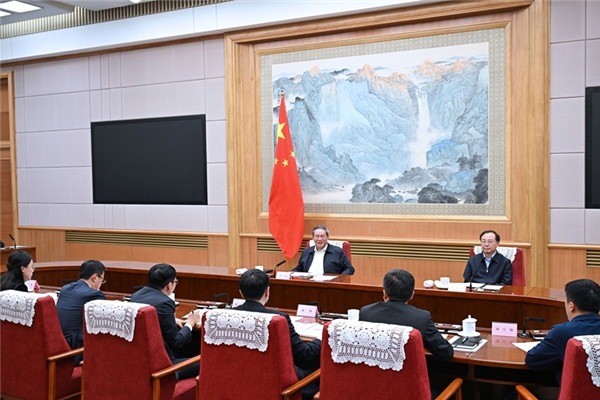China studies in the era of digital intelligence


International scholars gathered at the 2nd World Conference on China Studies to explore how digital technologies are transforming research methodologies and opening new frontiers in China studies, highlighting both opportunities and challenges in the digital age.
The sub-forum, themed "China studies in the era of digital intelligence: opportunities and challenges", held from Tuesday to Wednesday, brought together experts from multiple countries to discuss the intersection of technology and traditional Chinese studies.
Lin Shangli, president of Renmin University of China, emphasized that throughout human history, innovations in communication media have consistently catalyzed intellectual breakthroughs and academic advancement.
"As we enter the digital era, the impact of technology is unprecedented. Scholars now stand on new platforms, using digital tools to reinterpret traditional texts and unlock classical codes that were previously indecipherable, drawing upon 5,000 years of Chinese civilization to advance global development and civilizational progress," Lin said.
Digital humanities has become an integral component of China studies in the data age. According to Feng Huiling, director of the institute of digital humanities at Renmin University of China, despite its relatively recent emergence in China about a decade ago, the field has shown remarkable growth.
"The field has achieved coordinated development across research, education, and practical applications, supported by academic communities," Feng explained. By 2023, China had established 66 digital humanities research institutions and 28 related pan-digital humanities research centers, with the total number expected to exceed 100 by 2025.
Liu Wei, director and research professor of the institute of science and technology information at the Shanghai Academy of Social Sciences, presented a vision for China's digital humanities from the perspective of autonomous knowledge systems. He emphasized that building such systems involves more than merely digitizing ancient texts, cultural relics, and intangible heritage. "It's about reconstructing knowledge sovereignty and ensuring Chinese history, thought, and aesthetics are understood and transmitted in the digital world through China's own perspective," Liu said.
Liu said that the concept of sovereign AI emphasizes both technological and cultural sovereignty, requiring artificial intelligence to comprehend national linguistic logic, cultural common sense, and social values while aligning with unique ideological characteristics.
Practical applications of digital technology in China studies were showcased by several speakers. Donald Sturgeon, assistant professor of department of computer science at Durham University, demonstrated his team's AI-powered database of ancient Chinese texts. "Our platform processes over 7 billion characters of content, implementing both AI and crowdsourcing approaches for text digitization, annotation, and multilingual translation," he introduced.
However, scholars also acknowledged significant challenges in their research, including missing entries in ancient texts and complicated naming systems. Xu Jianwei, professor of school of liberal arts at Renmin University of China detailed the difficulties in digitizing classical studies, noting how Chinese classics' evolution poses unique challenges in digital preservation.
Liah Greenfeld, professor emeritus of sociology, political science and anthropology at Boston University, offered a broader perspective on Chinese civilization. Referring to the 2008 Beijing Olympics, she noted how China's rise "like the Himalayas" prompted the world to reassess its understanding of civilization. "Western civilization is not the whole story," she emphasized. "Each civilization should be evaluated within its own historical context rather than through external frameworks."
"World China studies in the digital era belongs both to China and the world," Lin remarked, expressing hope that wisdom derived from China's five millennia of civilization could illuminate the path forward for global civilizational development.
- China studies in the era of digital intelligence
- New platform aimed at China-Africa economic and trade cooperation launched
- Guangzhou upgrades tax refund services for visitors
- Xiong'an supporting policies attract talent
- Meng Fanlin elected as Guangdong's new governor
- Taiwan residents to get entry permits on arrival at more mainland ports





































